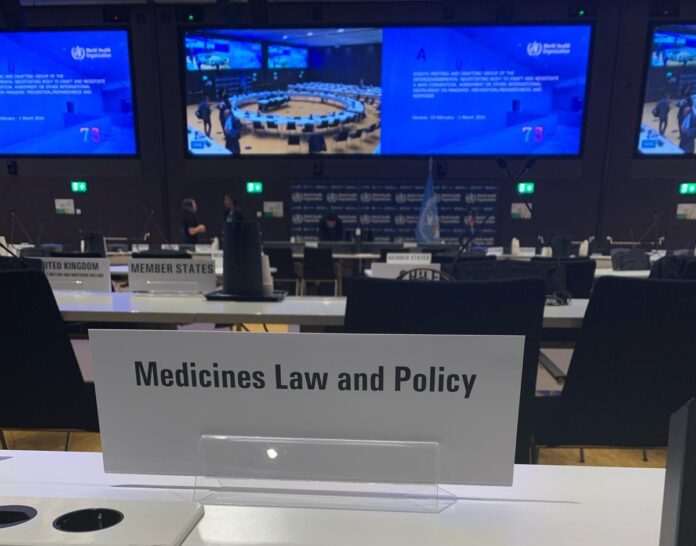Thank you for giving us the opportunity to address the opening session of the INB12.
We would like to make the following points:
A pandemic agreement will only be meaningful if its provisions contribute to changing the status quo. This is particularly important to ensure equity in access to pandemic products. The text before us does not meet this requirement and will need strengthening in the area of pathogen access and benefit sharing and access to and sharing of IP and know-how, including undisclosed information.
Equitable access will also require expanding production capacity in various regions of the world to be ready well before the next pandemic and this requires transfer of technology, know-how and IP.
Ensuring technology transfer for pandemic response should be a firm commitment by governments and not only be left to the willingness of commercial companies who are often reluctant to share their know-how.
Pandemic products are often developed with considerable financial contributions by the public sector which provides opportunities to attach conditions that will ensure that IP and know-how developed with public financing – whether owned by governments or not – is shared for the common global good.
Also for the purpose of expanding manufacturing capacity it is important to provide political and financial support to IP pooling mechanisms.
See more Medicines Law & Policy resources on the pandemic accord here.
Medicines Law & Policy brings together legal and policy experts in the field of access to medicines, international law, and public health. We provide policy and legal analysis, best practice models and other information that can be used by governments, non-governmental organisations, product development initiatives, funding agencies, UN agencies and others working to ensure the availability of effective, safe and affordable medicines for all.
